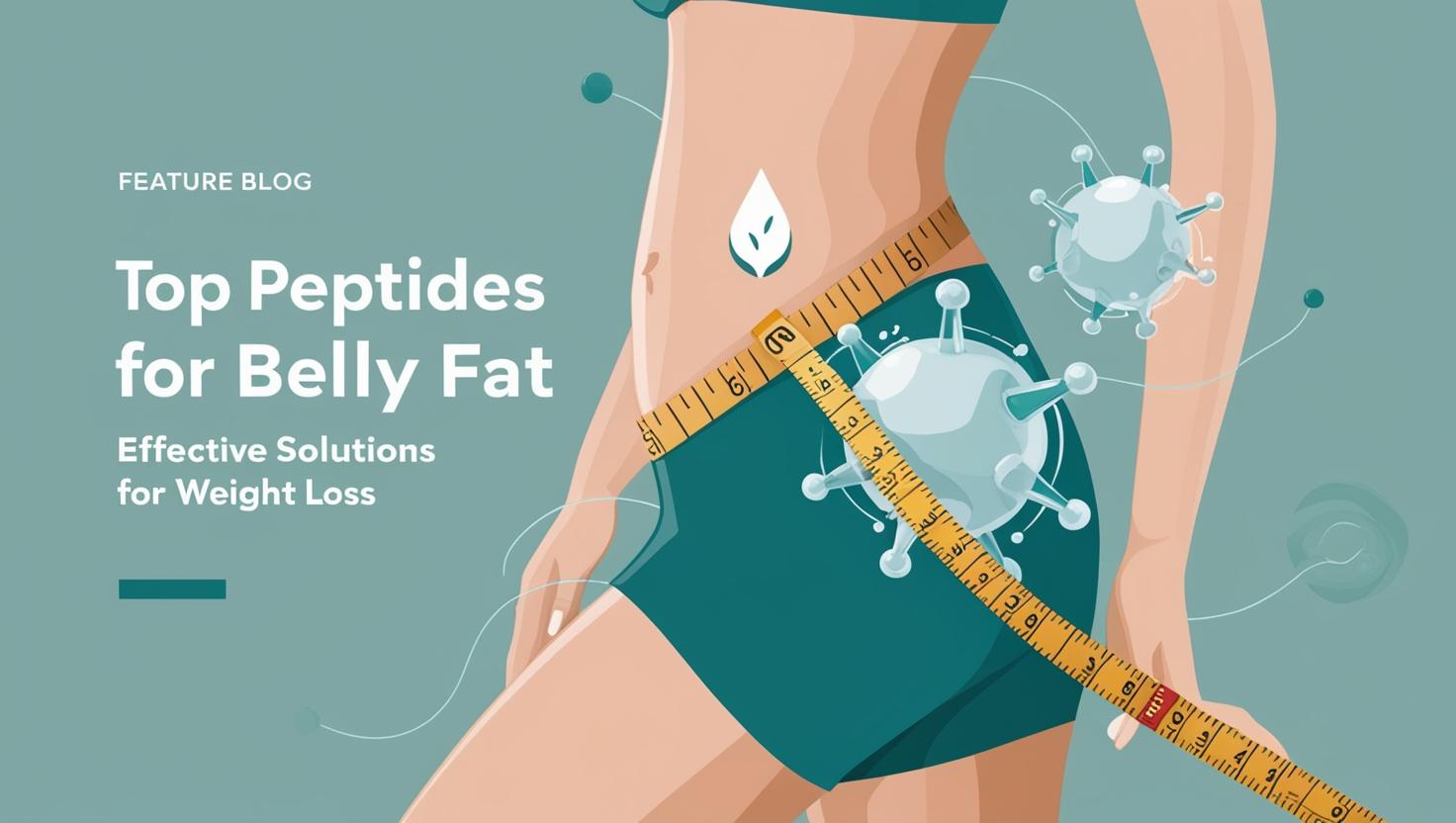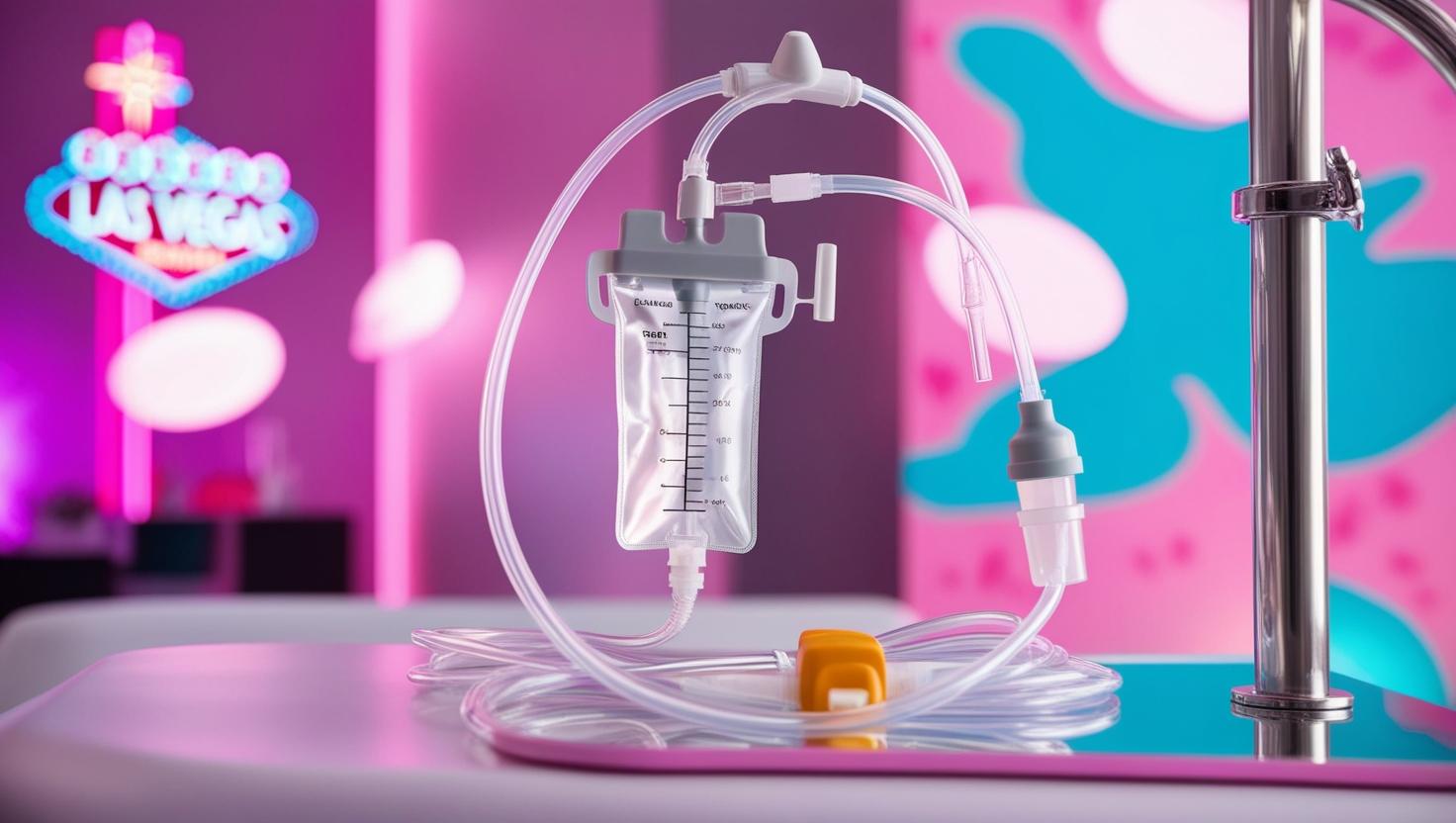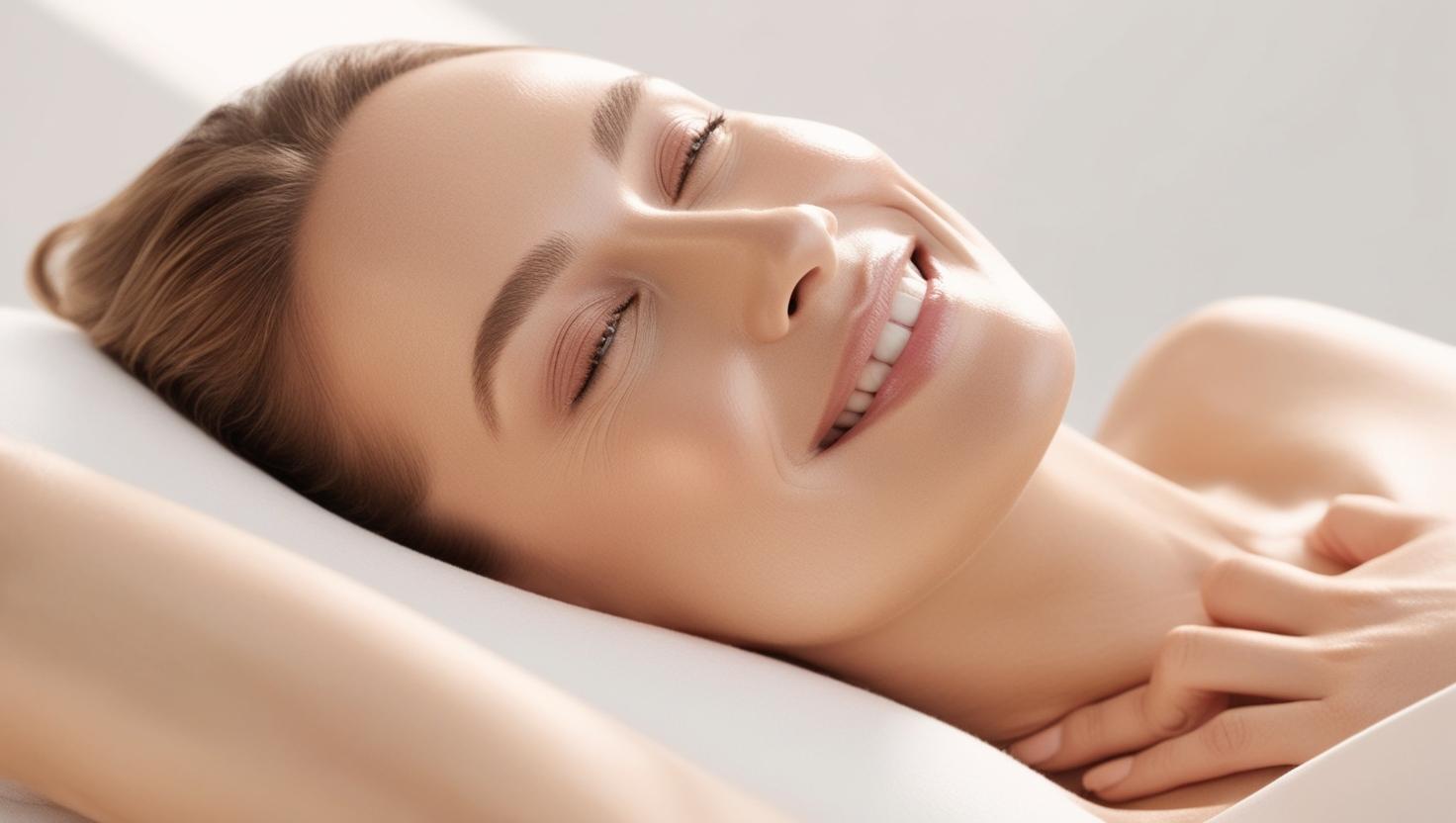As adults age, hormonal changes can disrupt sleep and mood, leading to insomnia and emotional instability. Hormone Replacement Therapy (HRT) can help.
In this article, we’ll explore how hormone replacement therapy can improve sleep and mood in aging adults by addressing these specific issues.
Key Takeaways
- Hormone Replacement Therapy (HRT) can significantly improve sleep quality and stabilize mood in aging adults, particularly for women experiencing menopausal symptoms.
- Understanding the impact of hormonal changes on sleep and mood is crucial in recognizing the potential benefits of HRT in alleviating insomnia and mood swings.
- Personalized treatment plans for HRT are essential to maximize benefits and minimize risks, emphasizing the importance of consulting healthcare providers for tailored hormonal health solutions.
The Impact of Hormonal Changes on Sleep and Mood

Menopause triggers a significant reduction in estrogen and progesterone, which greatly influences sleep quality and mood stability.
Poor sleep quality can lead to sleep disordered breathing:
- mood changes
- increased health risks
- wrinkles
- dark circles
This hormonal shift is a natural part of aging but can be quite disruptive, leading to chronic insomnia, sleep disturbances, and sleep disturbance, and mood swings.
A 2017 study by the North American Menopause Society suggests that low-dose hormones can improve sleep quality in menopausal women. Hormone Replacement Therapy (HRT) could be beneficial for menopausal women experiencing sleep disturbances.
Understanding the impact of hormonal changes on sleep and mood helps in appreciating the role of HRT in alleviating these issues.
Hormone Fluctuations and Sleep Disorders
Fluctuations in estrogen and progesterone affect women’s sleep and contribute to changes in the sleep-wake cycle.
During menopause, estrogen and progesterone levels fluctuate and decline until menstruation stops. This decline leads to various sleep issues, including insomnia and fragmented sleep.
Low progesterone levels contribute to fatigue and insomnia in women over 35, and symptoms associated with lower estrogen and progesterone levels include:
- higher body temperatures
- lower sleep quality
- anxiety
- poor mood
Frequent urination during menopause leads to getting up multiple times at night, fragmenting sleep. Hot flashes and night sweats are symptoms of menopause that significantly disrupt sleep. Hormones like estrogen and progesterone can influence the body’s internal clock, disrupting sleep patterns. Untreated hormone-related sleep disturbances can lead to worsening overall health.
Sleep disturbances are prevalent in perimenopausal and postmenopausal women, affecting 39-60% of this population. Approximately 61% of postmenopausal women report insomnia symptoms. Women suffer from insomnia nearly twice the rate of men as they age, due to hormonal changes. During menopause, women are at risk for sleep disorders such as sleep apnea and restless legs syndrome. Low estrogen can cause sleep problems, insomnia, and menopausal fatigue.
Hormonal Influence on Mood Swings
Hot flashes, mood changes, and vaginal dryness are common symptoms associated with low hormone levels during menopause. Increased irritability and unstable mood can result from low hormone levels. Fluctuations in estrogen and progesterone during perimenopause create a vulnerability to depression. Balancing hormones helps keep emotions in check, contributing to better mood management.
Poor sleep can exacerbate mood changes and increase the risk of depression in perimenopausal women. Hormone Replacement Therapy (HRT) may enhance emotional well-being by stabilizing mood fluctuations linked to hormonal changes. HRT can lead to significant improvements in mood by stabilizing hormonal levels.
Restoring estrogen levels through HRT can enhance cognitive function and alleviate issues like ‘brain fog’ commonly experienced during menopause, potentially improving cognitive functioning.
How Hormone Replacement Therapy Works
Hormone replacement therapy (HRT) is a treatment designed to replace hormones that the body produces less of during menopausal hormone therapy.
HRT can help alleviate symptoms such as:
- mood swings
- night sweats
- vaginal dryness
- hot flashes
- insomnia
It is recommended to start HRT as soon as menopausal symptoms begin for maximum benefit. Body Balance Medical emphasizes the importance of personalized treatment plans to effectively address individual hormonal health needs.
HRT works by supplementing the body’s declining hormone levels with synthetic or natural hormones, helping to restore balance and mitigate the uncomfortable symptoms of menopause. This therapy can take various forms, including estrogen and progesterone replacement, depending on individual needs.
Estrogen and Progesterone Replacement
Hormone Replacement Therapy can alleviate symptoms such as insomnia, hot flashes, and mood swings. Replacing low progesterone and estrogen can relieve insomnia. A tailored hormone replacement regimen can help manage both emotional and physical symptoms effectively. Thorough medical evaluations are conducted to accurately assess hormone levels and develop tailored hormone replacement therapy plans.
Estrogen replacement therapy can be particularly beneficial for aging women experiencing menopause symptoms, leading to significant improvements in sleep quality, mood stability, and overall well-being.
Types of Hormone Replacement Therapy
Hormone replacement options include:
- Oral tablets
- Transdermal patches
- Topical gels
- Bioidentical hormone alternatives
Each type of therapy has its own set of benefits and potential drawbacks, allowing individuals to choose the method that best suits their lifestyle and medical needs.
Oral tablets are a common form of HRT, providing a convenient and controlled dosage of hormones. Transdermal patches offer a steady release of hormones through the skin, while topical gels can be applied directly to areas of the body where hormone absorption is needed.
Bioidentical hormones, which are chemically identical to those the body naturally produces, are another popular option for those seeking a more natural approach to hormone replacement.
Benefits of Hormone Replacement Therapy for Sleep Quality

Hormone therapy addresses common sleep disturbances during menopause, significantly enhancing sleep quality for menopausal women. Low-dose estrogen therapy has shown improvements in overall sleep quality as early as one month after starting treatment.
Recent studies indicate that combination hormone therapy significantly increases self-reported sleep quality, reducing wake time from 20 to 12 minutes during initial sleep cycles and improving restfulness.
Women who have used hormone therapy in the past experience longer total sleep times compared to those who have never used it. Objective measurements show improved sleep quality in 2 out of 5 areas for women on hormone therapy.
Improved Sleep Onset and Duration
Women undergoing hormone replacement often report faster sleep onset and a reduction in insomnia symptoms due to the balancing effects of estrogen and progesterone. Perimenopausal women using HRT also observe better sleep quality and improved depressive symptoms.
This improvement in sleep onset and duration can be life-changing for those who have struggled with chronic insomnia and sleep disturbances. By restoring hormonal balance, HRT helps individuals fall asleep more quickly and stay asleep longer, leading to better overall health and well-being.
Reduction in Night Sweats and Hot Flashes
HRT significantly reduces the frequency of night sweats and hot flashes during sleep, resulting in fewer instances of waking up at night. Hormone therapy users experience fewer long-wake episodes compared to non-users.
These reductions in night sweats and hot flashes can lead to a more restful and uninterrupted sleep. For many individuals, this means waking up feeling refreshed and ready to face the day, without the exhaustion and irritability that often accompany poor sleep.
Enhanced REM Sleep
Hormone replacement therapy is shown to help restore REM sleep duration in menopausal women. REM sleep is critical for restorative processes during sleep, including memory consolidation and emotional regulation. Hormone replacement therapy aims to rebalance hormone levels, potentially restoring normal sleep architecture, including REM sleep.
HRT can improve REM sleep, leading to better overall sleep quality and mood in aging adults. Ensuring that the body cycles through all sleep stages, HRT helps individuals achieve deeper, more restorative sleep, which is essential for cognitive function and emotional stability.
Mood Improvements Through Hormone Replacement Therapy

Lower levels of estrogen and progesterone are linked to poor sleep quality, increased anxiety, and mood fluctuations, making women more susceptible to mood disorders during perimenopause. Balancing hormone levels through therapy can significantly improve mood stability and overall emotional well-being, effectively reducing depressive symptoms in aging adults.
By addressing the hormonal imbalances that contribute to mood instability, HRT helps individuals maintain a more consistent and positive emotional state. This can lead to a significant improvement in quality of life, as stable moods are essential for maintaining healthy relationships, productivity, and overall happiness.
Alleviation of Anxiety and Depression
HRT has been shown to significantly alleviate anxiety and depression in women experiencing menopause-related hormonal shifts. Research indicates that patients undergoing HRT report reductions in both anxiety and depressive symptoms. Estrogen is linked to serotonin production, and its decline may lead to increased anxiety and depressive symptoms. Research indicates that hormone therapy, especially with combined progesterone, can significantly reduce anxiety and depression in women.
Restoring hormonal balance with HRT helps stabilize the production of neurotransmitters like serotonin, crucial for regulating mood. This can significantly reduce symptoms of anxiety and depression, allowing individuals to feel more at ease and emotionally balanced.
Better Emotional Stability
Consistent hormone levels due to HRT improve emotional stability, reducing the risk of mood disorders. This emotional resilience is crucial for overall mental health, particularly in aging adults as hormonal changes occur.
HRT aids in maintaining emotional stability, positively impacting the overall mood of aging adults. Balanced hormone levels reduce the likelihood of extreme mood swings, contributing to a more peaceful and fulfilling life.
Risks and Considerations of Hormone Replacement Therapy

While HRT offers numerous benefits, awareness of associated risks is crucial. Estrogen-progestin combination therapy can elevate the risks of heart disease and breast cancer. HRT may increase the risks of blood clots, stroke, and heart diseases. For women over 65, the risks associated with HRT remain controversial due to limited data.
Discussing the risks and advantages of hormone therapy with a healthcare provider is essential in deciding its appropriateness. Weighing the risks versus benefits before starting hormone therapy is crucial, and a doctor may recommend against HRT based on a previous history of certain medical conditions.
Before starting HRT, it’s important to consider factors such as medical history, age, personal preferences, and known risk factors.
Potential Side Effects
Demographic factors such as ethnicity, with groups like African American women, and body mass index (BMI) may influence the risk profile for those who do not use Hormone Therapy. Hormone Replacement Therapy carries certain risks and side effects that need careful consideration. Some studies indicate a potential increased risk of breast cancer associated with its use.
Hormone Replacement Therapy may elevate the risk of cardiovascular diseases in some patients. Individuals considering HRT should thoroughly discuss potential side effects with their healthcare provider and how they may impact overall health.
Personalized Treatment Plans
Tailored hormone replacement therapy plans are crucial for effective treatment, taking into account individual needs and circumstances. Regular consultations with healthcare professionals ensure therapy adapts to individual needs. Personal medication assessments are vital to categorize current medication use and inform treatment planning.
A personalized approach aligns therapy with the patient’s specific health profile and lifestyle, maximizing benefits while minimizing risks. This customization is a cornerstone of effective hormone replacement therapy and its successful outcomes.
Alternatives to Hormone Replacement Therapy
For individuals unsuitable for HRT, exploring alternatives is essential. Lifestyle modifications, such as regular exercise, a balanced diet, and stress management techniques, can significantly enhance sleep quality and emotional well-being. Non-hormonal medications, such as antidepressants or certain anti-anxiety drugs, can effectively manage menopause symptoms, providing another option for those preferring to avoid HRT.
Overall, adopting lifestyle changes and considering non-hormonal medications offer viable alternatives for those unable to use HRT, contributing to improved sleep and mood. These alternatives can be just as effective for many individuals and come with their own set of benefits and considerations.
Lifestyle Modifications
Large meals, spicy or acidic foods can trigger hot flashes before bedtime. Avoiding nicotine, caffeine, and alcohol before bed can improve sleep quality. A diet rich in calcium and vitamin D supports bone health and may mitigate menopause-related symptoms. Wearing loose clothing improves comfort and ventilation, helping manage symptoms like hot flashes.
Decreasing liquids before bedtime can reduce nighttime bathroom trips. A suggested bedroom temperature for better sleep is 65 degrees F.
These practical lifestyle changes can have a significant impact on managing menopausal symptoms and can help relieve menopausal symptoms while improving overall quality of life.
Non-Hormonal Medications
Gabapentin, commonly used for nerve pain, has shown effectiveness in diminishing menopausal symptoms like hot flashes. This makes it a valuable consideration for women experiencing menopausal discomfort. Non-hormonal medications can provide effective alternatives for managing menopausal symptoms.
These medications are a suitable option for those who prefer not to undergo hormone replacement therapy or for whom HRT is not recommended. By working with their healthcare provider, individuals can find the best non-hormonal treatment plan to manage their symptoms effectively.
Body Balance Medical’s Approach to Hormone Therapy

Body Balance Medical emphasizes a personalized approach to hormone therapy to cater to individual patient needs. By focusing on the unique hormonal health needs of each patient, Body Balance Medical aims to provide effective and tailored HRT solutions.
Their approach includes comprehensive assessments and a variety of hormone therapy services, ensuring that each patient receives the most appropriate and effective treatment for their specific condition.
Comprehensive Assessments
Thorough evaluations at Body Balance Medical are crucial for creating effective hormone replacement therapy plans. Evaluations include detailed health histories and physical examinations to gather comprehensive information. These thorough evaluations help identify specific hormonal imbalances before starting therapy.
The tailored hormone therapy plans developed from these assessments significantly improve outcomes for aging adults. By ensuring that each patient receives a personalized treatment plan, Body Balance Medical helps maximize the benefits of hormone replacement therapy.
Testosterone Replacement Therapy Services
Body Balance Medical offers Testosterone Replacement Therapy services for patients who want to enhance their health and wellness with this treatment. This therapy can be beneficial for both men and women experiencing low testosterone levels, helping to improve energy, mood, and overall well-being.
By providing comprehensive testosterone replacement therapy services, Body Balance Medical ensures that patients receive the support they need to achieve optimal health and vitality.
Summary
Hormone replacement therapy can be a game-changer for aging adults struggling with sleep disturbances and mood swings. By addressing the root cause—hormonal imbalances—HRT offers a way to restore balance and improve quality of life. From enhancing sleep quality and reducing night sweats to stabilizing mood and alleviating anxiety, the benefits of HRT are substantial.
While it’s important to consider the potential risks and consult with healthcare providers to determine the best course of action, the positive impact of HRT on sleep and mood cannot be overstated. For those who are unable to use HRT, alternatives such as lifestyle modifications and non-hormonal medications can also provide relief. By exploring these options, aging adults can find the best solution for their needs and enjoy a healthier, more restful, and emotionally stable life.
Frequently Asked Questions
What is hormone replacement therapy (HRT)?
Hormone replacement therapy (HRT) effectively alleviates menopause symptoms like mood swings and hot flashes by replacing hormones your body produces less of. Embrace this option to enhance your well-being and reclaim your comfort!
How does HRT improve sleep quality?
HRT can significantly improve your sleep quality by balancing hormone levels, reducing insomnia symptoms, and allowing for deeper, more restful sleep. Embrace this positive change for a better night’s rest!
What are the potential risks of HRT?
HRT can pose risks such as increased chances of heart disease, breast cancer, blood clots, and stroke. Make sure to consult with your healthcare provider to weigh these risks and make an informed decision.
Are there alternatives to HRT?
Absolutely, you can explore lifestyle changes like regular exercise, a nutritious diet, and stress management, along with non-hormonal medications. Embrace these alternatives to find what works best for you!
How does Body Balance Medical approach hormone therapy?
Body Balance Medical takes a personalized approach to hormone therapy, providing comprehensive assessments and tailored treatment plans to ensure effective solutions that meet your unique needs. Empower yourself with the right support for your health journey!







